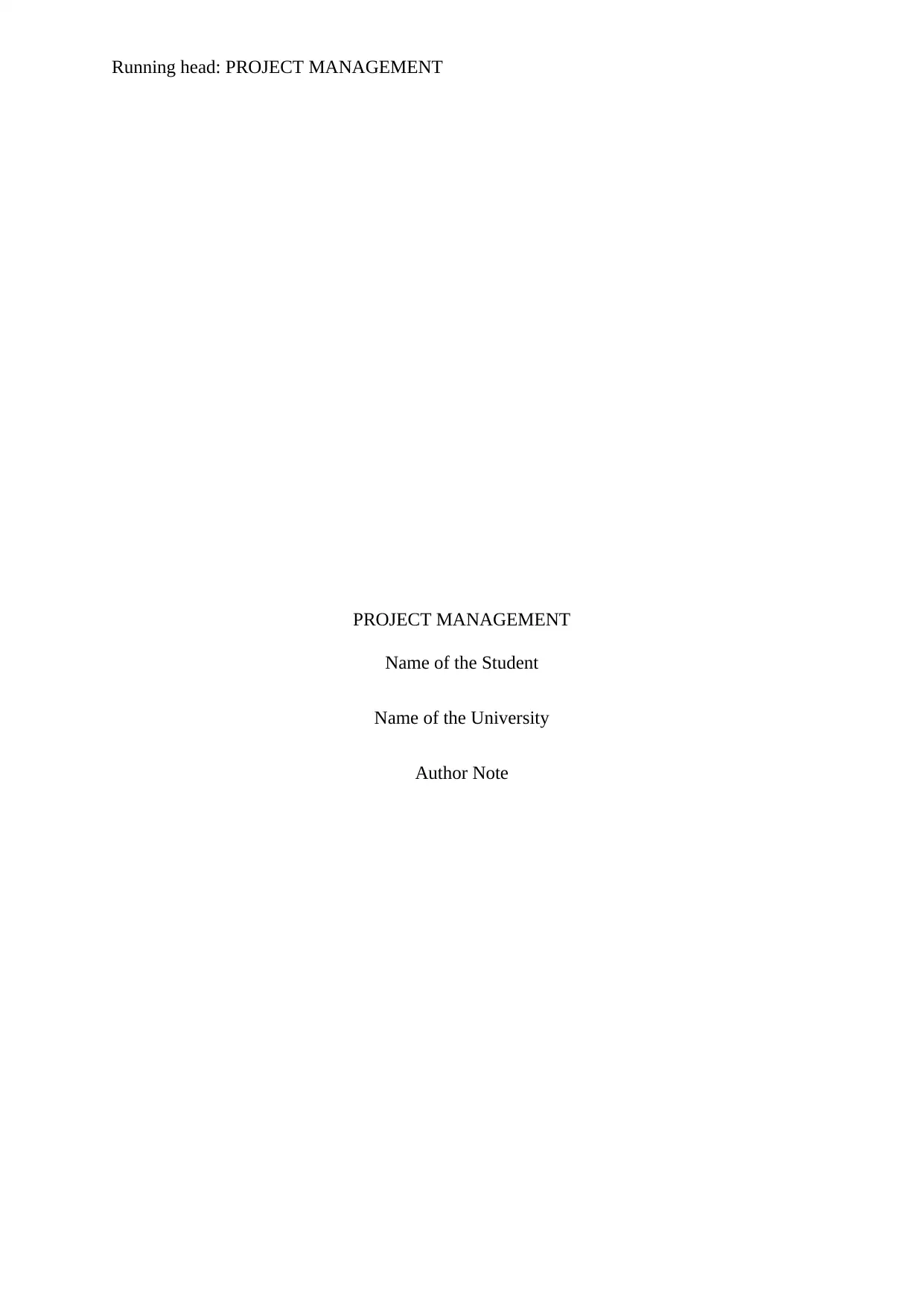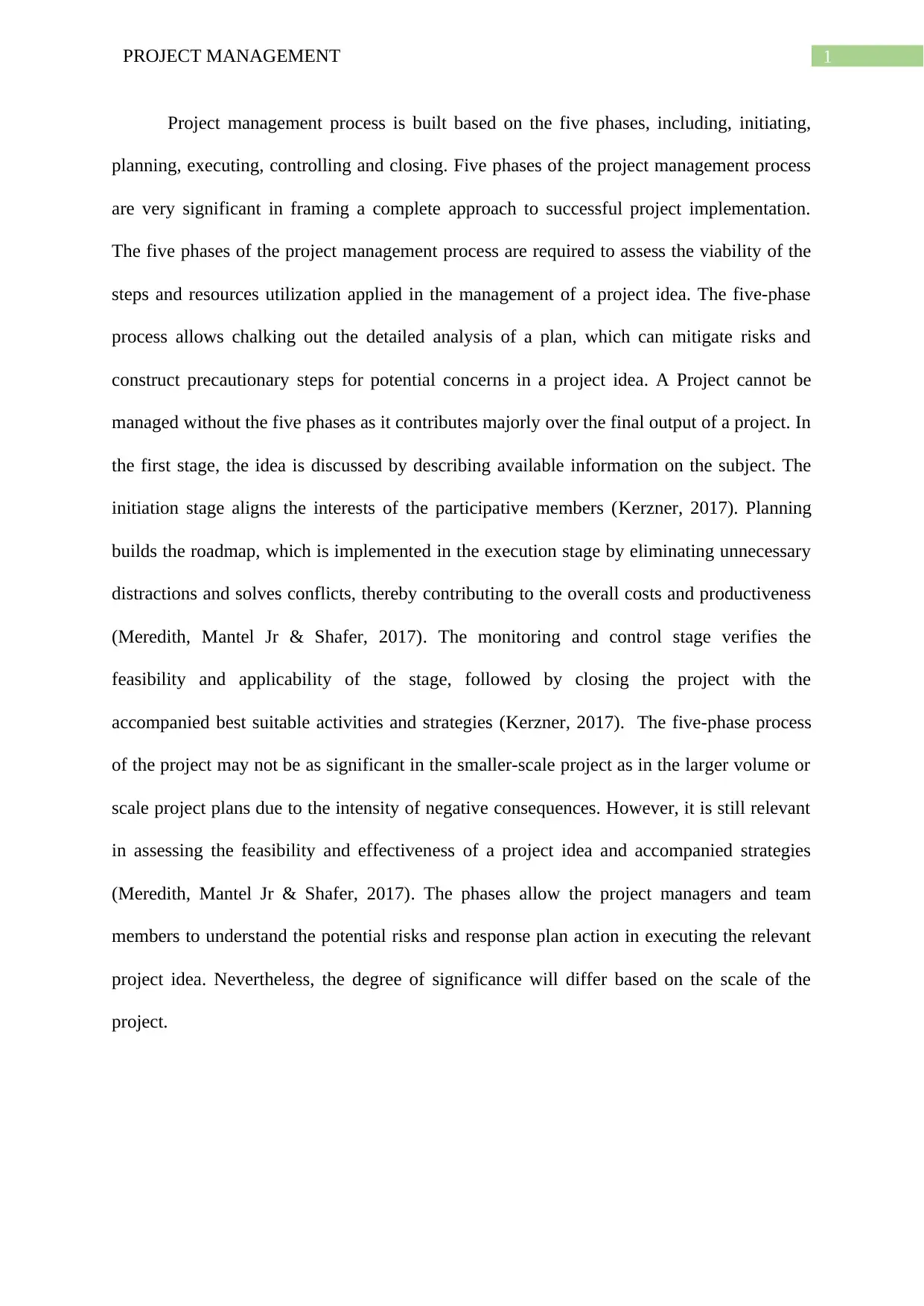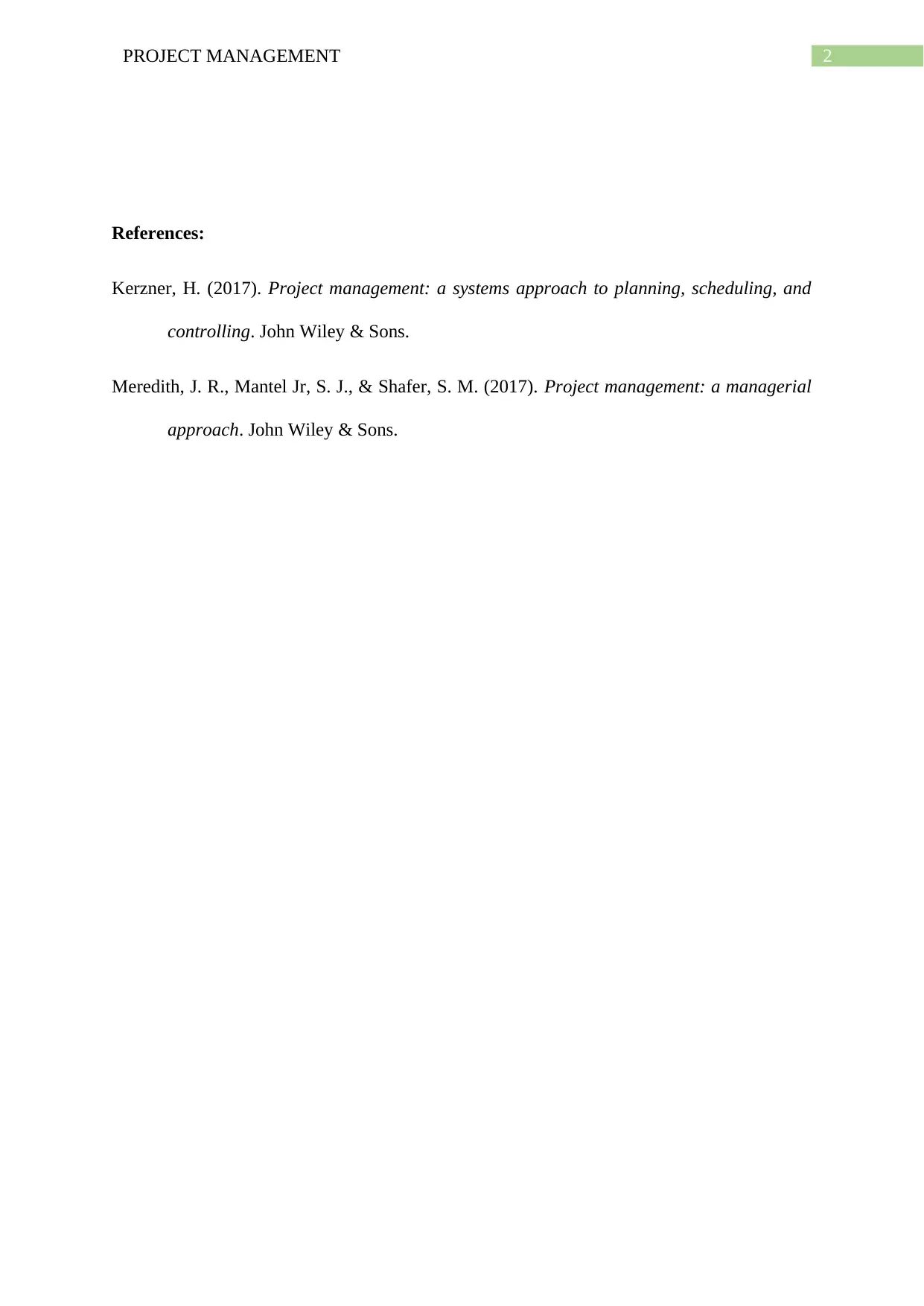Project Management: Analyzing the Five Phases of a Project
VerifiedAdded on 2022/08/21
|3
|414
|16
Project
AI Summary
This project management assignment explores the five crucial phases of the project management process: initiating, planning, executing, controlling, and closing. The assignment emphasizes the significance of these phases in ensuring successful project outcomes, particularly in larger-scale projects, while also acknowledging their relevance in smaller projects. It details how each phase contributes to the overall project lifecycle, from establishing project goals and roadmaps to managing risks, resolving conflicts, and assessing the feasibility of strategies. The document references key project management literature to support its arguments, highlighting the importance of a structured approach to project management for effective resource utilization and the mitigation of potential challenges. The assignment provides a comprehensive overview of the project management process, offering valuable insights into how to approach and manage projects from start to finish.
1 out of 3










![[object Object]](/_next/static/media/star-bottom.7253800d.svg)